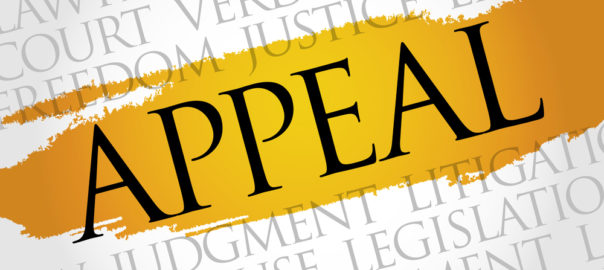U.S. v. Riggi
649 F.3d 143
Second Circuit Court of Appeals
Decided on Aug. 10, 2011
Were you wrongfully convicted of a federal crime? Contact a Federal Appeals Attorney today. Learn more about federal appeals at FederalAppealsLawFirm.com.
Appeal Waivers in Plea Agreements
Issue:
Whether a waiver of the right to appeal in a plea agreement is enforceable when the sentencing court applied the 2008 Sentencing Guidelines and the conviction, a murder conspiracy, ended in 1989 where the 2008 Guidelines contain a significant enhancement, creating a Constitutional Ex Post Facto issue
Holding:
The Court held that waivers of the right to appeal are presumptively enforceable, even when the Ex Post Facto Clause is implicated, as the defendant knowingly waived his right to appeal in the plea agreement where he expressly agreed that the 2008 Guidelines would be used to calculate the offense level and that the plea agreement was binding even if the court used a different Guidelines range.
Facts:
Defendant Philip Abramo pled guilty to conspiracy to commit murder, conspiracy to commit loansharking and receiving proceeds of extortion in a plea agreement that contained a broad appeal-waiver provision for any sentence eighteen years or less. Abramo was sentenced to 186 months’ imprisonment.
Though the charged murder conspiracy ended in 1989 upon the death of the targeted victim, the 2008 Sentencing Manual Guidelines were applied to determine Abramo’s sentence. He appealed, arguing the application of the 2008 Guidelines violated his ex post facto rights. He invoked contract principles, classifying the Guidelines stipulations as a mutual mistake of fact that rendered his appeal-waiver unenforceable.
Analysis:
General Principles of Appellate Waivers
Waivers of the right to appeal a sentence are presumptively enforceable. The Second Circuit has repeatedly upheld the validity of appeal waivers if they are knowingly, voluntarily and competently provided by the defendant. Plea agreements are construed according to contract law principles, but because the plea agreements are unique contracts, the application of ordinary contract principles are tempered with special due process concerns for fairness and the adequacy of procedural safeguards.
Appellate Waivers: When Are They Voidable
Appeal waivers are voidable when a defendant’s fundamental rights are violated. The Court has voided appeal waivers where the sentence imposed was based on unconstitutional factors such as race (see Gomez-Perez, 215 F.3d at 319), naturalized status (see U.S. v. Jacobson, 15 F.3d 19, 23 (2d Cir.1994), or ability to pay restitution (see U.S. v. Johnson 347 F.3d 412, 415, 419 (2d Cir.2003). Additionally, The Court has voided waivers when a sentencing court “failed to enunciate any rationale for the defendant’s sentence” and thus abdicated its judicial responsibility (U.S. v. Woltmann, 610 F.3d 37, 39-40 (2d Cir.2010).
Appellate Waivers: When Are They Enforceable
The Court upholds the validity of appeal waivers if they are “knowingly, voluntarily, and competently provided by the defendant” (U.S. v. Gomez-Perez 215, F.3d 315, 318 (2d Cir. 2000), and maintains that “other meaningful errors” are insufficient to void a waiver. The Court has enforced appeal waivers where a sentence was arguably imposed contrary to a statutory requirement (see Yemitan 70 F.3d at 748). The Court determines that a defendant who enters a plea agreement “simultaneously waives several constitutional rights” (U.S. v. Waters, 23 F.3d 29, 36 (2d Cir.1994).
Decisive Considerations: Voidable versus Enforceable
The Second Circuit held that in determining whether a waiver of appellate rights will be voided or enforced the decisive considerations are the nature of the right at issue and whether the sentence was reached in a manner that the plea agreement did not anticipate. Regarding the nature of the right, a defendant can waive fundamental constitutional and statutory rights.
Constitutional Concerns Regarding the Ex Post Facto Clause
In U.S. v. Rosa, (123 F.3d 94 (2d Cir.1997), the Court held that they will set aside the waiver and accept appeal when constitutional concerns are implicated. In Rosa, the parties did not stipulate to a sentence below which the defendant would not appeal, thus the agreement “may have subjected a defendant to a sentence vastly greater than he, or possibly even the Government, could have anticipated” (Id.) Notwithstanding the Rosa case’s “disturbing characteristics,” the Court enforced the appeal waiver.
In this case, however, Abramo’s plea agreement stipulated (1) that the 2008 Guidelines be used; (2) that the applicable Guidelines sentence was eighteen years’ and (3) that the agreement was binding even if the court used a different Guidelines range.
Ignorance of Existing Constitutional Rights as Grounds for Voidable Appeal Waiver
The Court has hinted that ignorance of existing rights may void a plea agreement and a waiver of appellate rights when a “defendant can establish that he was unaware of his Apprendi rights at the time he entered into his plea agreement” (U.S. v. Morgan 386 F.3d 376, 381 n. 3 (2d Cir.2004). Abramo claims the Guidelines error in this case rose from his ignorance of existing constitutional rights, but the Court determines that claim would be relevant only to a claim of ineffective-assistance regarding the advice Abramo received from counsel, as it was his lawyer’s obligation to inform the client of his constitutional rights. But Abramo is not raising an ineffective-assistance claim here.
Furthermore, the Court determines that even if Abramo was unaware of the ex post facto issue when he pled guilty, he was well aware of it by the time of sentencing and he made no motion to withdraw his plea and took no step to preserve the issue for appeal. The Court holds that the plea waiver is enforceable, and Abramo’s appeal is denied.


